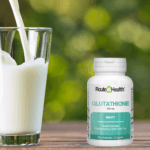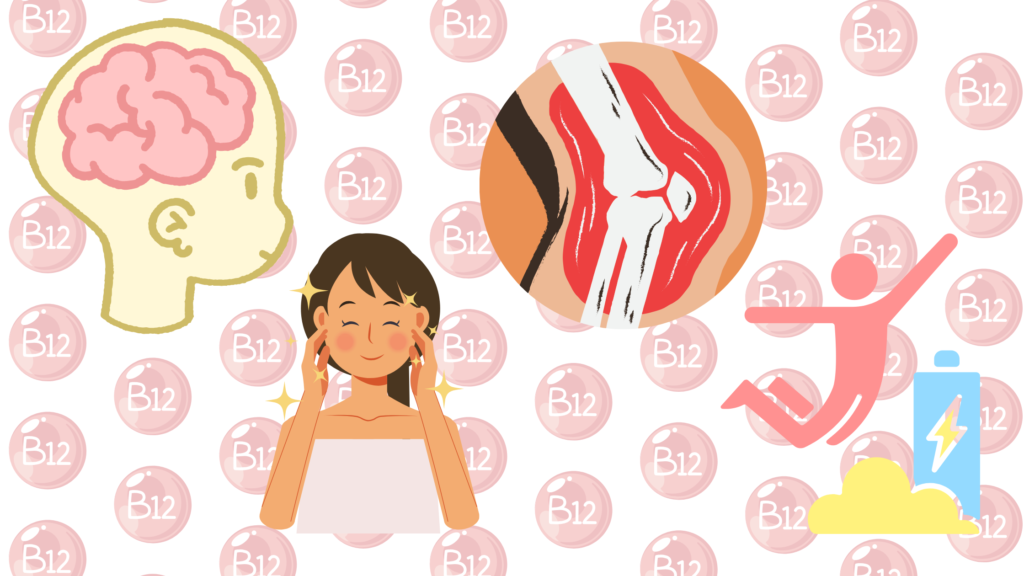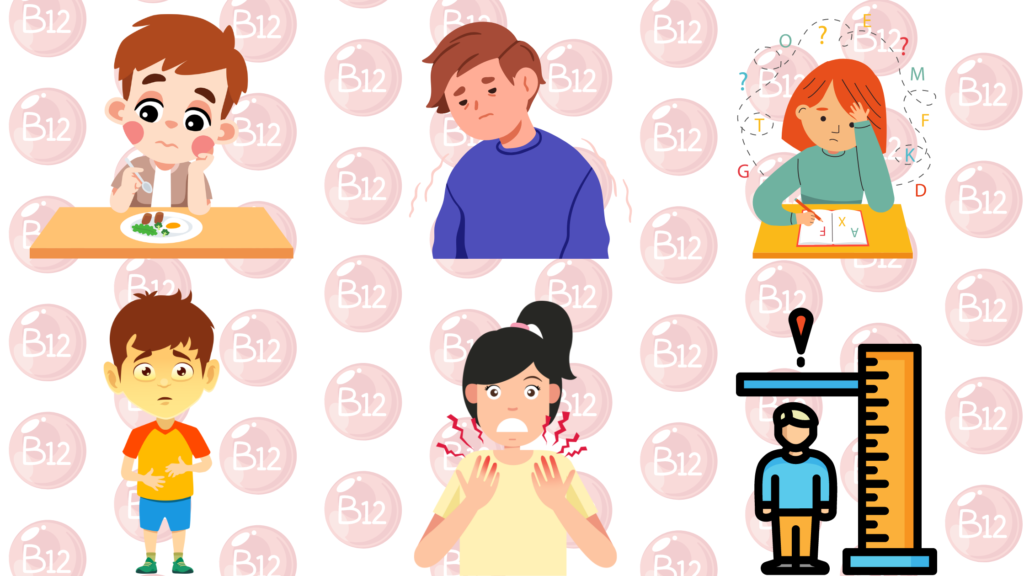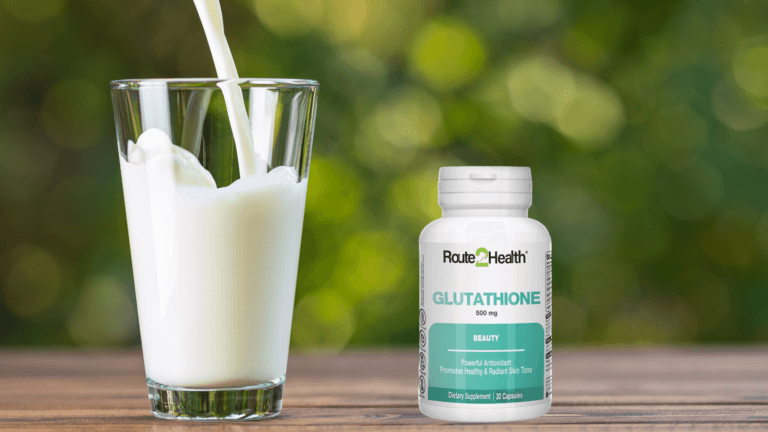
Berdi
urinary Track Health
Are you worried that your child might not be getting enough vitamin B12? Wondering how much is the right amount for their growing needs? Vitamin B12 is essential for your child’s growth and development, but what is the correct vitamin B12 dosage for kids?
Vitamin B12, also known as cobalamin, is vital for several bodily functions. For children, it plays a crucial role in supporting nerve health, brain function, and the production of red blood cells. It is also essential for DNA synthesis and overall energy production.
While it’s clear that Vitamin B12 is critical for kids, the question remains: how much should your child be getting daily, and why is it so important? Let’s delve into the details to help you understand the correct vitamin B12 dosage for kids and how it supports their growth and development.
Is your child feeling sluggish, tired, or irritable? These could be signs of a vitamin B12 deficiency. Vitamin B12 is essential for various bodily functions, including red blood cell production, nerve function, and DNA synthesis. Ensuring your child gets the right amount of vitamin B12 is crucial for their overall health and development.
Vitamin B12 plays a vital role in a child’s growth and development. It helps to:

A vitamin B12 deficiency can have serious implications, especially for children. Given that B12 is primarily found in animal products, kids on vegetarian or vegan diets are at a higher risk of deficiency. Even children who consume animal products may not absorb enough vitamin B12 due to other health conditions.
According to the Harvard Medical School, vitamin B12 deficiency in children can cause fatigue, weakness, poor concentration, and even developmental delays if not addressed promptly. Studies suggest that prolonged deficiency can lead to irreversible damage to the nervous system, making it crucial to detect and treat B12 deficiency early.
The symptoms of vitamin B12 deficiency can vary but may include:
If you notice any of these symptoms in your child, it’s important to consult a healthcare professional to assess their vitamin B12 levels.

While vitamin B12 deficiency is less common in children than in adults, certain groups are more susceptible. Research indicates that children from vegetarian and vegan households, as well as those with gastrointestinal issues such as Crohn’s disease or celiac disease, may struggle with vitamin B12 absorption. Additionally, babies born to mothers who have a B12 deficiency are at higher risk.
The recommended vitamin B12 dosage for kids varies based on their age and dietary needs. According to the National Institutes of Health (NIH), the guidelines for daily vitamin B12 intake are as follows :
For most children, a balanced diet that includes fortified cereals, dairy, eggs, meat, and fish will provide adequate vitamin B12. However, supplementation may be necessary if your child follows a plant-based diet or has absorption issues.
Since vitamin B12 is primarily found in animal products, ensuring your child gets enough through diet can sometimes be a challenge, especially for those on vegetarian or vegan diets. Here are some excellent dietary sources of vitamin B12:

When dietary intake isn’t sufficient, supplements can help bridge the gap. Many multivitamins for children include the necessary amount of vitamin B12. Supplements are available in various forms, including liquids, gummies, and chewable tablets, making it easier for kids to take them.
According to research, vitamin B12 supplements are effective and safe for children, particularly those at risk of deficiency due to diet or health conditions. However, it’s always recommended to consult with a healthcare provider before starting any supplementation to determine the right dosage for your child based on their unique needs.
For kids who may struggle to get enough vitamin B12 from food, a supplement like Kids One Daily by Route2Health is an excellent option. This multivitamin is designed to ensure your child gets all the essential nutrients they need, including vitamin B12, to support healthy growth and development.
Vitamin B12 is water-soluble, meaning any excess is generally excreted in urine, making overdoses extremely rare. However, excessively high doses may occasionally lead to minor side effects like dizziness or headaches in children. Always stick to recommended dosages unless advised otherwise by a healthcare professional.
Now that you know the correct vitamin b12 dosage for kids, ensuring your child gets enough of it is essential for their growth and overall health. From supporting cognitive development to boosting energy levels, vitamin B12 plays a crucial role in a child’s well-being. While most kids can meet their B12 needs through a balanced diet, some may require supplementation, especially those on restricted diets or with absorption issues.
If you’re concerned about your child’s vitamin B12 levels or are looking for a reliable supplement, Kids One Daily by Route2Health is an excellent choice. This multivitamin offers a balanced blend of essential vitamins, including B12, to support your child’s growth and development.
The recommended vitamin B12 dosage for children varies by age: 0.4 mcg for infants (0-6 months), 0.9 mcg for toddlers (1-3 years), and 1.8 mcg for kids aged 9-13 years.
Symptoms include fatigue, developmental delays, poor concentration, pale skin, and nerve issues like tingling in hands and feet.
Foods like fortified cereals, dairy products, eggs, meat, fish, and fortified plant-based milks are good sources of vitamin B12.
Vegetarian or vegan children may struggle to get enough B12 from food alone, so supplements or fortified foods are often recommended.
Yes, vitamin B12 supplements are safe for children, especially those at risk of deficiency. However, it’s best to consult with a healthcare provider for the correct dosage.











©2023 Route2Health®️
NTN: 2229383
AN ASSOCIATED COMPANY OF HIGHNOON LABORATORIES
STRN: 0301999937728

WhatsApp us
